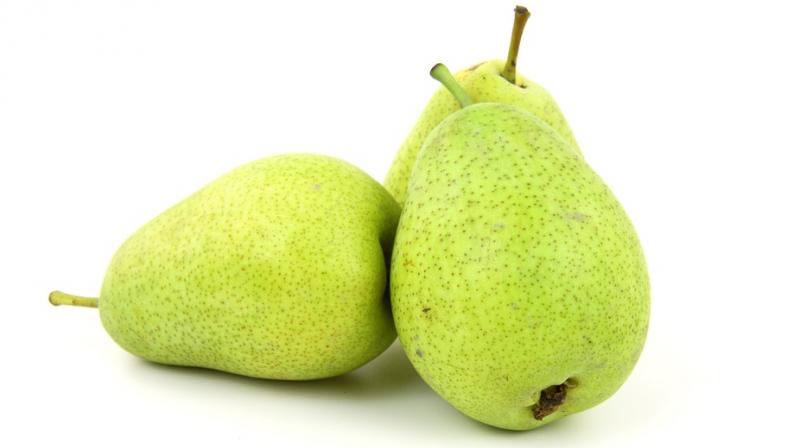Adult fresh pear consumers have lower body weight than non-pear ones, says study
The study found that adult pear consumers had a lower body weight than non-pear consumers and they were 35 percent less likely to be obese.

New Delhi, India: It's the month of festivities and the perfect time to enjoy juicy, sweet USA Pears. If that isn't reason enough to fill your shopping basket, there's another reason to add this Pear-fect fruit to your Diwali list.
A new study, "Fresh Pear Consumption is Associated with Better Nutrient Intake, Diet Quality, and Weight Parameters in Adults: National Health and Nutrition Examination Survey 2001-2010," published in Nutrition and Food Science, has revealed the health benefits of pear consumption.
Of particular interest given the high rates of obesity in India, the study found that adult pear consumers had a lower body weight than non-pear consumers and they were 35 percent less likely to be obese.
The epidemiologic study, led by Carol O'Neil of the Louisiana State University Agricultural Center, used a nationally representative analytic sample to examine the association of fresh pear consumption with nutrient intake, nutrient adequacy, diet quality, and cardiovascular risk factors in adults.
"The association between pears and lower body weight is very exciting," said Dr. Carol O'Neil. She added, "We believe fiber intake may have driven the lower body weights that were seen in this study because there was no difference in energy intake or level of physical activity found between the fresh pear consumers and non-consumers."
In addition to discovering a correlation between fresh pear consumers and lower body weight, the study found that pear consumption was associated with higher diet quality (as defined by the Healthy Eating Index). Moreover, the consumption of one medium fresh pear per day had a positive effect on nutrient intake since consumers had higher usual intakes of dietary fiber, vitamin C, magnesium, copper, and potassium, and higher mean intakes of total sugars; consumers of fresh pears also had lower intakes of total, monounsaturated fatty acids, saturated fatty acids, and added sugars.
Commenting on the study, Ms. Naaznin Husein, President, Indian Dietetic Association, says, "Pears are an excellent source of fiber and a good source of vitamin C. One medium pear provides about 24 percent of daily fiber needs for only 100 calories. They are sodium-free, cholesterol-free, fat-free and contain 190 mg of potassium. It packs all the nutritional value with an exceptionally delectable sweet taste. This makes it the best healthy substitute for sweets during Diwali."
The USDA Dietary Guidelines for Americans state that people who eat more fruit as part of an overall healthy diet are likely to reduce their risk of some chronic diseases, although little is published on the health outcomes associated with individual fruits, including pears.
The USA Pear Bureau continues to collaborate with researchers to commission additional studies that show the relationship between pears and positive health outcomes.

